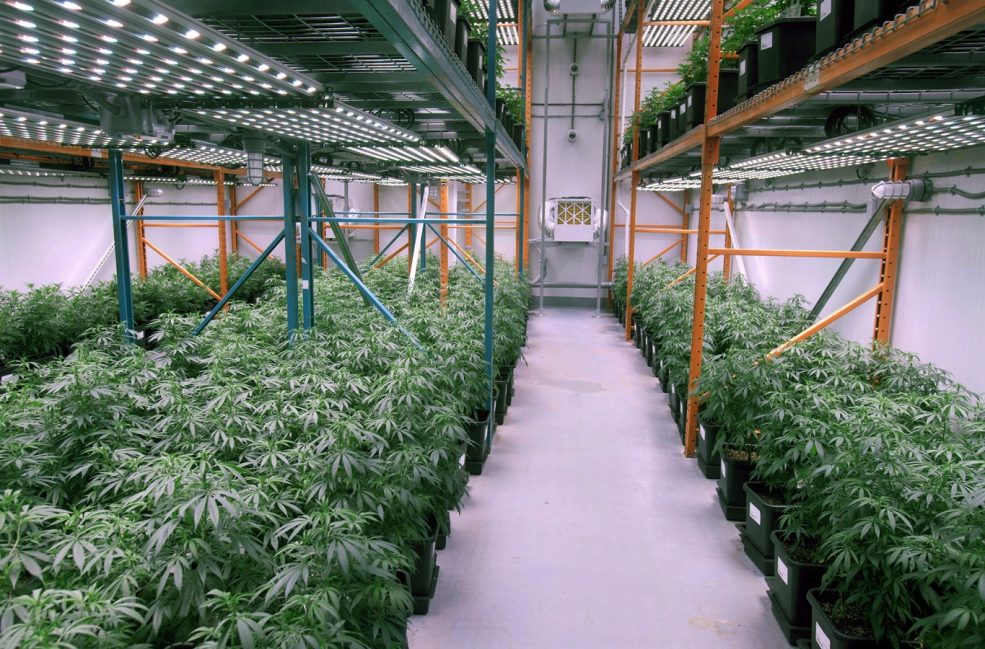Organigram has launched a judicial review of Health Canada‘s extract-edible decision. On March 31st, 2023, the licensed producer filed a notice of application with the Federal Court of Canada for Judicial Review.
As a spokesperson for Organigram told CLN, “We remain of the view that the patent pending products are properly classified as cannabis extracts and compliant with the Cannabis Regulations.”
Organigram Files Judicial Review
Earlier this year, Health Canada caught the already fledgling Canadian cannabis industry by surprise when they announced certain products were dangerous.
Although “dangerous” wasn’t a word they used, we must infer it from their alleged commitment to public health and safety.
Suppose Organigram’s Edison Jolts are actually “edible cannabis products erroneously being classified and marketed as cannabis extract products,” as Health Canada told CLN. In that case, there is a clear and present danger to Canadian cannabis consumers.
Except, there isn’t.
Whether something is a “chewable extract” or an “edible” is irrelevant. Consumers bought Edison Jolts based on THC content, price, and availability. The only “public health and public safety risks” are the fantasies conjured by federal bureaucrats.
Organigram told CLN they launched Edison Jolts after “significant research, development and regulatory work.”
While the LP couldn’t provide additional details, there must be enough to warrant a Judicial Review in Federal Court, which is now underway.
What is a Judicial Review?
Some bureaucrats, like those in the Canadian territory of the Yukon, believe they are above the law. That trained legal professionals should defer their expertise to government midwits.
But centuries of legal tradition beg to differ.
The Notice of Application that Organigram filed sets the grounds for the legal challenge. It likely outlines Health Canada’s alleged errors while requesting the Federal Court to review the decision and reconsider the ordinance.
Judicial review is a power the Federal Court has to review (and disregard if necessary) the various rules and regulations of regulatory bodies, tribunals, and government departments.
The idea behind a judicial review is to ensure these agencies act within the confines of their authority, procedural fairness, and the rule of law.
And indeed, if the Federal Court’s Judicial Review agrees with Organigram, it wouldn’t be the first time Health Canada overstepped their legal bounds.
For example, Health Canada approved dangerous pesticides for use in food production. An advocacy group challenged them, and the Federal Court agreed. Health Canada needs to reconsider their decision.
Or consider a pharmaceutical for a rare genetic disorder. Health Canada said it was good to go. The Federal Court said, you better check again.
Federal Court documents are public (unless there’s a Confidentiality Order). Because of this, Canadians could see how the Trudeau government based its covid travel restrictions on politics rather than science.
While monopolistic courts of ultimate-decision making aren’t immune from criticism, they retain a powerful balance against the petty tyranny of Western bureaucrats and politicians. Organigram having to file a judicial review over cannabis products people are voluntarily buying is a perfect example.
Do We Need Health Canada?
Organigram is filing a request for judicial review concerning Health Canada’s extract-edible decision.
Which begs the question: do we even need Health Canada?
The famous Chinese philosopher Lao Tzu once said, “The more laws and order are made prominent, the more thieves and robbers there will be.”
And that’s undoubtedly true in cannabis, where the people who once threw you in a cage for it are now profiting from it and helping write the rules.
But the cannabis industry – or any industry, for that matter – doesn’t require these large, extensive bureaucracies. We already have laws on the books to regulate goods and services.
Tort and criminal law provide security, while contract, property, and commercial law facilitate cooperation and exchange. Politicians don’t need to get involved.
We need rules and regulations to live together peacefully. But with the freedom to fail, succeed, take risks, and act on opportunities.
The Western legal tradition of common law promotes rules and regulations that minimally infringe on civil and economic liberties.
The rules and regulations created and imposed by the centralized state allow specific individuals to exercise political power over others. It masks the exploitative actions of Health Canada under the guise of “public health and safety.”
But as Organigram is finding out, Health Canada’s definition of words changes depending on how they feel.
A better system would place accreditation and regulatory agencies in a free market where a third party guarantees your cannabis. And where that third party’s reputation relies on approving quality.
Health Canada approved a dangerous pesticide for use on food crops. The decision required a federal judge to intervene. If Health Canada was a private accreditation company, given this history, would you trust them with regulating cannabis?
If there’s any lesson in Organigram filing for a judicial review, it’s this.

 Cannabis News1 year ago
Cannabis News1 year ago
 One-Hit Wonders1 year ago
One-Hit Wonders1 year ago
 drug testing5 months ago
drug testing5 months ago
 Cannabis 1011 year ago
Cannabis 1011 year ago
 Marijuana Business Daily1 year ago
Marijuana Business Daily1 year ago
 Education1 year ago
Education1 year ago
 Education1 year ago
Education1 year ago
 Cannabis1 year ago
Cannabis1 year ago




























